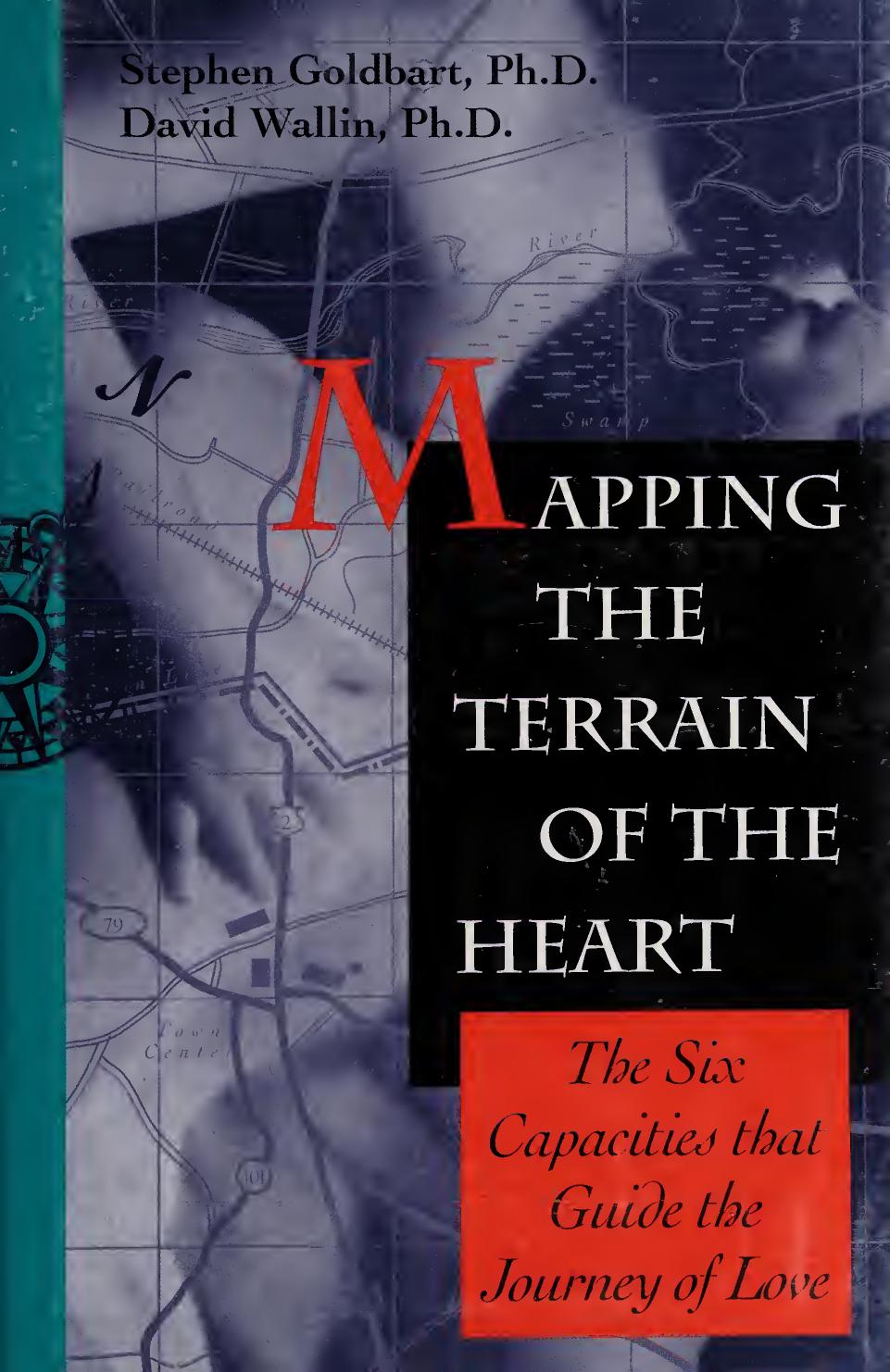Mapping the terrain of the heart : the six capacities that guide the journey of love by Goldbart Stephen

Author:Goldbart, Stephen
Language: eng
Format: epub, pdf
Tags: Love, Interpersonal relations, Man-woman relationships, Intimacy (Psychology)
ISBN: 9780201608656
Publisher: Reading, Mass. : Addison-Wesley
Published: 1994-09-19T16:00:00+00:00
DEFENSES AGAINST IDEALIZATION AND IDEALIZATION AS A DEFENSE
Suzanne protected herself by defending against idealization (as she says, “I never met a man I couldn’t find something wrong with”); Karen protected herself by using idealization as a defense (she looks for and finds a “great guy” to take care of—and hopes his grateful love will heal her wounded self-esteem). These solutions can be seen as defining opposite ends of a continuum that represents the range of possible responses to narcissistic injury. When we feel that our self-esteem is vulnerable, most of us make use of responses that lie somewhere between the two exaggerated alternatives described below.
When Our Romantic Ideal Is “Over-Ideal”
Shouldn’t we be a little suspicious of our conduct in love when we find that perfection just isn’t good enough? This is an ironic way of describing the defensive style of those of us whose romantic ideal so exaggerates the desirable qualities we seek in a mate that he or she can be found only in our fantasies or dreams. On the surface such an “impossible quest” for the perfect partner would seem to guarantee nothing more than a life of perfect loneliness. But in pursuing a romantic ideal that can never be found, we always have the safety and comfort of fantasy to anesthetize the pain of wounded self-esteem. The reassuring mirage of our own perfection is protected through the conviction that if only we could find the right mate all our discontents would vanish, and through avoiding the kind of actual intimate involvement that might challenge our wishful fictions about who we are.
When our fragile esteem rests on fantasy, it is frightening to be really seen—especially by someone who matters deeply to us. And yet, because our self-aggrandizing fantasy is hard to sustain
if we are always alone, we also need to be seen or, more accurately, seen at our best. We need, in other words, to be idealized.
This dilemma of need and fear can be solved only by finding romantic involvements and then withdrawing from them. We can afford to idealize those we might love, but only until they begin to matter enough to deeply affect or hurt us. At this point our idealization becomes a danger and we have to defend against it. To protect ourselves from the fear of exposure and the threat to self-esteem, those we have loved and idealized must now be depreciated or devalued. But for this “solution” to work, we need to remain ignorant of the real meaning of our pattern of involvement and withdrawal, idealization and depreciation—this pattern that keeps us alone.
It is not uncommon for therapists to hear patients struggling to understand whether their loneliness is the outcome of their psychology or their circumstances. Sometimes these patients talk about their fear of making a mistake, of choosing the wrong partner, of foreclosing their chances for something better. But there is often a significant element of self-deception here, which is evident in their apparent absence of worry about winding up alone.
The psychoanalyst
Download
Mapping the terrain of the heart : the six capacities that guide the journey of love by Goldbart Stephen.pdf
This site does not store any files on its server. We only index and link to content provided by other sites. Please contact the content providers to delete copyright contents if any and email us, we'll remove relevant links or contents immediately.
Rewire Your Anxious Brain by Catherine M. Pittman(18640)
Talking to Strangers by Malcolm Gladwell(13344)
The Art of Thinking Clearly by Rolf Dobelli(10446)
Mindhunter: Inside the FBI's Elite Serial Crime Unit by John E. Douglas & Mark Olshaker(9313)
Becoming Supernatural by Dr. Joe Dispenza(8196)
Change Your Questions, Change Your Life by Marilee Adams(7754)
Nudge - Improving Decisions about Health, Wealth, and Happiness by Thaler Sunstein(7689)
The Road Less Traveled by M. Scott Peck(7592)
The Lost Art of Listening by Michael P. Nichols(7487)
Mastermind: How to Think Like Sherlock Holmes by Maria Konnikova(7315)
Enlightenment Now: The Case for Reason, Science, Humanism, and Progress by Steven Pinker(7305)
Win Bigly by Scott Adams(7183)
The Way of Zen by Alan W. Watts(6595)
Daring Greatly by Brene Brown(6501)
Big Magic: Creative Living Beyond Fear by Elizabeth Gilbert(5753)
Grit by Angela Duckworth(5601)
Ego Is the Enemy by Ryan Holiday(5412)
Men In Love by Nancy Friday(5232)
The Laws of Human Nature by Robert Greene(5170)
